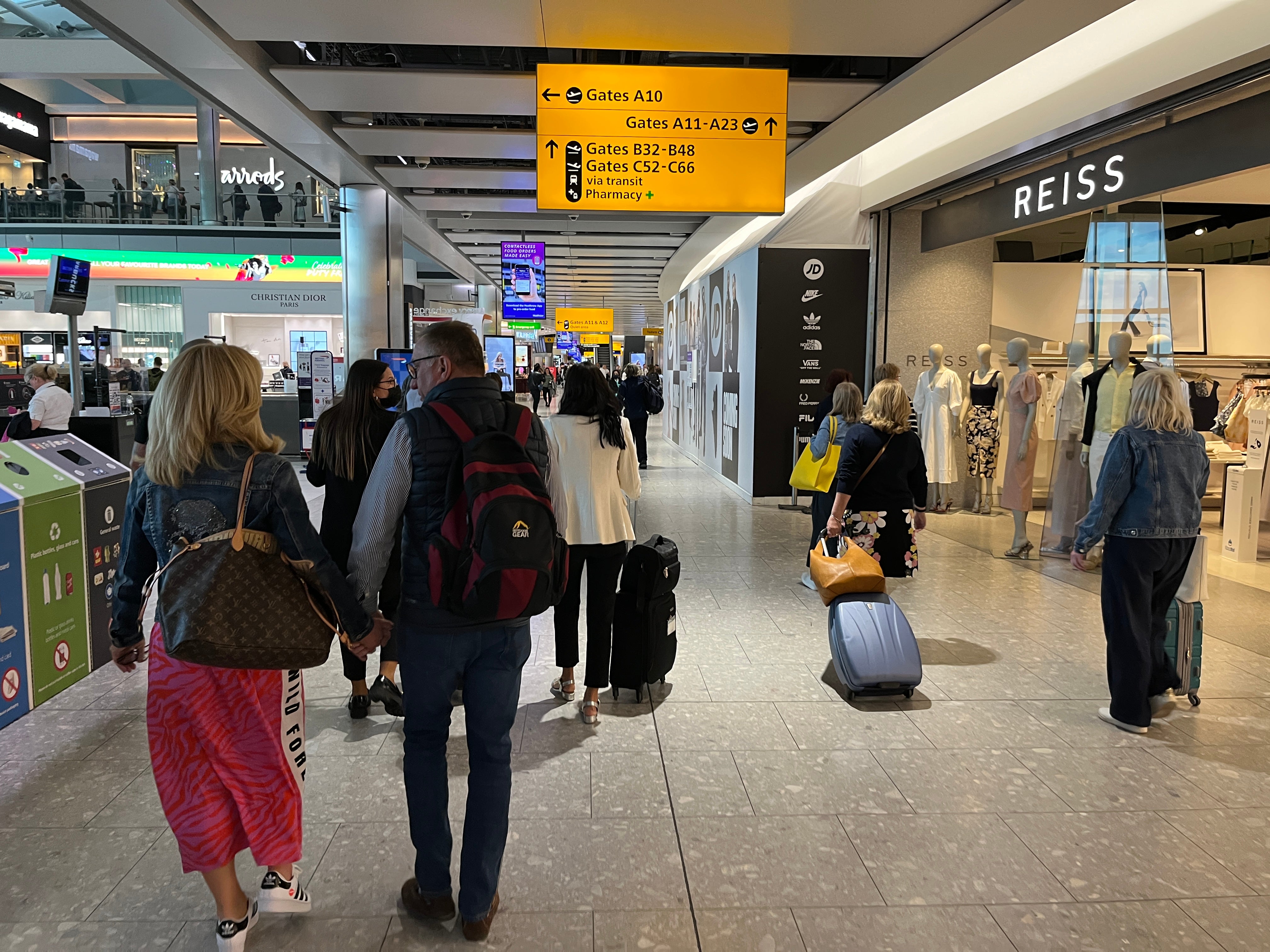Heathrow’s Christmas crush – what could it mean for your travel plans?
Britain’s biggest airport is seeking to align ‘supply and demand on a small number of peak days in the lead up to Christmas’

Christmas 2022 was supposed to be the time when many British travellers could make the trips they had missed out on during the years of Covid. But the UK's main departure point, London Heathrow Airport, is warning that it may re-introduce a cap on passenger numbers.
How would this work, and what would it mean for travellers?
How has Heathrow handled passenger numbers this summer?
Like other airports, Heathrow has suffered from post-Covid re-growing pains – with long queues for security and passport control, and overstretched baggage handling.
Since July, in a bid to reduce the stress on the system, the airport has said that the airlines must trim their operations to ensure that the operation can cope with the numbers. A cap of 100,000 departing passengers per day was introduced.
While some airlines simply stopped selling tickets for flights, hundreds of flights were cancelled – in addition to the thousands of preplanned cancellations by the airport’s main customer, British Airways.
Technically it's still summer in the airline world, with the season ending and turning into winter when the clocks change in the early hours of Sunday morning.
That will also be when the current cap on departing numbers from Heathrow ends. No one is likely to notice as passenger numbers are unlikely to exceed 100,000 anyway – until the Christmas rush begins.
What is Heathrow proposing for the festive season?
“We are working with airlines to agree a highly targeted mechanism that, if needed, would align supply and demand on a small number of peak days in the lead up to Christmas,” says the airport.
“This would encourage demand into less busy periods, protecting the heavier peaks, and avoiding flight cancellations due to resource pressures.”
Heathrow is talking to carriers about retiming some departing flights from the morning rush to the afternoon, which tends to be quieter.
What does that mean for people with confirmed bookings?
The vast majority of passengers won’t be affected – but for some it could mean that the departure time is changed.
Although the measure is directed at controlling outbound numbers, it may also affect inbound passengers by changing their travel times, too,
Any adjustment at Heathrow has repercussions. The flight times are where they are because they interact with slots and connections at other airports.
For example Singapore Airlines has two morning departures to its hub, with the vast majority of passengers connecting in Singapore for other locations.
Delay those flights until the afternoon and those connections are messed up. Also, airlines plan their aircraft use meticulously, and can’t just say, “Oh fine, we’ll move our schedule by a few hours to suit Heathrow.”
The more travellers there are who are dependent on connections, the less likely it is that the flight will be moved.
Flights with higher numbers of “point-to-point” travellers on board, such as those to big African cities, are more likely to be time-shifted because few passengers will have connections
If my flight is changed, what are my rights?
If there is a significant difference to your arrival time, then you may be able to cancel for a full refund. You won’t get any compensation because (a) you’ll get over two weeks’ warning and (b) the airlines are not to blame.
Over Christmas most people are simply keen on reaching their destination as planned.
Whether the flight is cancelled or retimed, standard European air passengers’ rights rules apply: the airline must get you to your destination as close to the original plan as possible – and it could mean, for example, that you switch to a different UK departure point, such as Gatwick, Birmingham or even Manchester instead of Heathrow.
What do the airlines say?
They are concerned, because Christmas is precisely the time they make maximum profits by flying planes full with passengers paying premium fares.
Tim Alderslade, chief executive of Airlines UK, said: “Christmas is a key travel period and Heathrow must ensure that any mechanism or new cap introduced is justified and has as little impact on traveller plans as possible.
“Going forward, as the UK’s only hub airport it must ensure its overly pessimistic forecasts on passenger numbers – exceeded significantly this year – don’t leave the airport short on resource when planning for future demand.”
Are other airports having such problems?
Not in the UK. Gatwick had a cap in place for the number of flights in July and August, and Tui voluntarily reduced its operations in early summer at Manchester.
But across at Amsterdam Schiphol, passenger caps are in place – and over the summer we saw the spectacle of KLM Royal Dutch Airlines stopping selling tickets from its home base for a weekend because it simply couldn’t be sure passengers would get through the security queue in time.
Will the government step in?
Doubtful. The UK now has its third transport secretary since the start of September. Top of the in-tray of the new minister, Mark Harper, is the rash of rail strikes rather than airline consumer protection.
Subscribe to Independent Premium to bookmark this article
Want to bookmark your favourite articles and stories to read or reference later? Start your Independent Premium subscription today.

Join our commenting forum
Join thought-provoking conversations, follow other Independent readers and see their replies